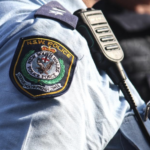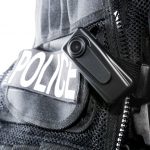Victoria Police Illegally Installed Permanent Listening Devices in Prisons

Victoria police permanently installed at least 115 listening devices in prisons at various times between 2000 and 2018. These ‘integrated listening devices’ were often installed during construction or renovation, and without any guidance supporting the policy shift. And while warrants were issued in relation to their use, there’s no evidence the devices weren’t used at other times.
In response to questions put to it, Victoria police told Integrity Oversight Victoria in 2023, that these devices had been installed over the 18 year period, but without any warrants issued in accordance with the Surveillance Devices Act 1999 (VIC) (SD Act), and when it reviewed 99 warrants issued between 2008 and 2024 in respect of them, it found judges weren’t told the devices were installed.
Released on 20 November 2025, The Permanent Installation of Listening Devices in Prisons and Their Use by Victoria Police report sets out that while some devices were there from at least 2000, the first information supporting this practice is from 2018, and when considering the watchdog’s previous inspections, documents provided to it suggested listening devices weren’t permanently installed.
So, while the devices weren’t being removed and reinstalled, warrants were governing when they were activated and deactivated, but the judicial officer and the Public Interest Monitor continued to understand that the devices were being temporarily installed. And while VicPol might have been keen to keep these devices secret, the watchdog asserts judges should have been privy.
Integrity Oversight Victoria outlines that the process governing the use of these devices was to obtain a warrant in respect of the SD Act, and while its investigation did find that listening devices were only turned on and used during authorised periods, the watchdog could not definitively declare this was the case, as no current records exist “to confirm when the listening devices were activated”.
Opps… that’s noncompliant
The Victorian integrity body set out to determine whether Victoria police was operating outside the authority of the SD Act, in terms of its use of its integrated listening devices. Indeed, to ensure that the six state law enforcement agencies authorised to use surveillance devices under the SD Act are in compliance, the watchdog checks their internal records every six months.
The integrity body inquired into VicPol’s use of listening devices in prisons in July 2023, to clarify how it mitigates risk against prying into inmates’ privacy when capturing conversations that have nothing to do with an investigation. However, further questioning resulted in a direct query regarding whether the devices were pre-installed in prisons and the policing agency then came clean.
“Victoria police advised it received information in 2018 that indicated its methodology complied with the SD Act, however it could not locate or identify any earlier information, including guidance received in this matter,” the reports states. “This meant there does not appear to be any guidance supporting Victoria Police’s practice for installing listening devices in prisons from 2000 to 2017.”
The watchdog then prompted VicPol to consider further points about its questionable practices, and the law enforcement agency then responded that it now understood that the warrantless installation of the devices was noncompliant with the SD Act, and further, the police “also stated there were implications if information obtained from these devices was relied on in prosecutions”.
VicPol subsequently advised that it would be decommissioning the devices, initially to render them unusable. However, it’s now considering removal and reinstallation under a new warrant. It’s also looking to the prospect of retrospective legislative reform, so that the previously permanently installed devices would be considered kosher, and as to their prosecutorial use, it’s yet to comment.
Misusing a necessary evil
“It is our assessment that Victoria Police did not comply with the SD Act when installing and maintaining integrated listening devices,” IOV asserts in its report, adding that as this was an ongoing issue for a long period, the significance of VicPol’s noncompliance with the law is heightened, and further, device maintenance was neither authorised and such devices risk misuse.
The watchdog said, it understands such surveillance in prisons is warranted when undertaking the investigation of serious crimes, and that installation of these devices must be done covertly. It also recognises that as the suspect devices were being secretly used upon inmates, the fact that they were in existence was not something the police wanted to broadcast.
The importance of having these devices governed by the SD Act and then that law enforcement agencies abide by its stipulations is that surveillance devices breach a person’s right to privacy, and if a prosecution is going to refer to such sensitive information in court, it is vital that the documentation underpinning it isn’t void.
“Victoria Police is undertaking considerable work to determine the use of information collected from these devices so it can carry out a disclosure process,” the report confirms.
Recommendations accepted
In response to the report, Victoria police said it had acted in “good faith” at all times. IOV supports this position by stating that the law enforcement agency immediately halted its use of the devices on learning that their use was illegitimate. VicPol further considers the SD Act is not fit for purpose, and it is seeking retrospective changes.
VicPol has already accepted all Integrity Oversight Victoria’s recommendations, which include the agency exploring how to more transparently describe its methodologies and novel technologies to judicial officers, when it makes surveillance device applications, as well as the recommendation to establish standardised wording around surveillance devices applications.
The state law enforcement agency has also agreed to overhaul its recording of listening device usage, including installation and removal. IOV has further requested that when VicPol does propose to use a new capability that will involve the authority of the SD Act, that it gets in contact with the watchdog, so that it is aware that this has been progressed.
Integrity Oversight Victoria further noted that while the current report did not address how it came to be that listening devices were integrated into Victorian prisons without Victoria police advising any other authority, and neither anyway to guarantee that they weren’t used outside of the authority of a warrant, it will report back later to fill in these details.







